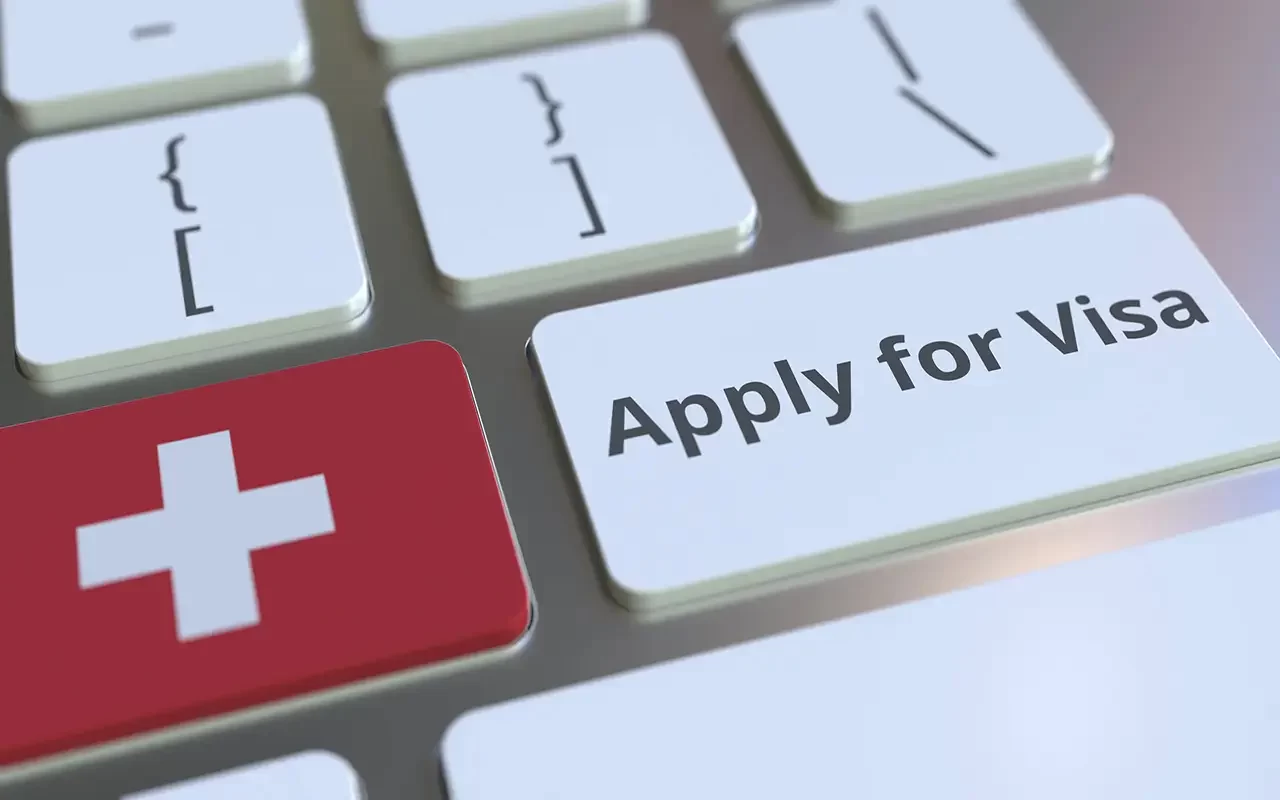
Table of Contents
Overview of Switzerland
Landlocked Switzerland is bordered by Germany to the north, France to the west, Austria to the east, and Italy to the south. Its population of 8.57 million speaks four official languages: German, French, Italian, and Romansh. Wealthy and pristine, alpine Switzerland boats a highly efficient economy alongside its sophisticated cities, charming alpine villages, and majestic mountains. Switzerland’s rugged landscape fostered a tradition of isolationism and a commitment to political neutrality, best reflected in its historical aversion to entangling alliances with neighboring states, and its more recent resistance to joining the European Union. A coveted place to work and reside in central Europe, Switzerland has one of the most advanced free market economies in the world, its city Zurich is one of Europe’s financial and banking centers. Its capital, Bern, extends from its medieval city center, which is a UNESCO Heritage Site. The city of Geneva, with its views of Mt. Blanc, is a diplomatic center and the seat of many intergovernmental organizations, including the International Red Cross. With artists like Alberto Giacometti and Felix Vallotton and architect Le Corbusier as native sons, Switzerland boasts important museums and galleries such the Fine Arts Museum in Basel, location of the world’s most important art fair. Tourists come from all over the world to ski and hike the stunning Swiss Alps–the Matterhorn is its most famous. Its luxurious ski resorts draw wealthy Europeans, while its clear alpine lakes, charming villages, and rolling hills dotted with caramel-colored, bell wearing cows, delight visitors of all budgets. In addition to pristine mountain air, visitors to Switzerland can enjoy its decadent chocolates and fondues, and shop for a Rolex in the world’s watchmaking capital. Expensive to both reside in and visit, Switzerland has its own currency; the Swiss Franc. One of the 4 non-EU Schengen Member States, Switzerland signed the Schengen Agreement in 2004, becoming part of the Schengen area in 2008.Switzerland Schengen Visa Eligibility
Schengen visa eligibility for Switzerland includes third-country nationals from the following states, who are excluded from visa-free to Switzerland/the Schengen area, and are therefore eligible to apply for a Schengen visa to Switzerland:|
1. AFGHANISTAN |
53. LAOS |
|
2. ALGERIA |
54. LEBANON |
|
3. ANGOLA |
55. LESOTHO |
|
4. ARMENIA |
56. LIBERIA |
|
5. AZERBAIJAN |
57. LIBYA |
|
6. BAHRAIN |
58. MADAGASCAR |
|
7. BANGLADESH |
59. MALAWI |
|
8. BELARUS |
60. MALDIVES |
|
9. BELIZE |
61. MALI |
|
10. BENIN |
62. MAURITANIA |
|
11. BHUTAN |
63. MONGOLIA |
|
12. BOLIVIA |
64. MOROCCO |
|
13. BOTSWANA |
65. MOZAMBIQUE |
|
14. BURKINA FASO |
66. NAMIBIA |
|
15. BURMA/MYANMAR |
67. NAURU |
|
16. BURUNDI |
68. NEPAL |
|
17. CAMBODIA |
69. NIGER |
|
18. CAMEROON |
70. NIGERIA |
|
19. CAPE VERDE |
71. NORTH KOREA |
|
20. CENTRAL AFRICAN REPUBLIC |
72. OMAN |
|
21. CHAD |
73. PAKISTAN |
|
22. CHINA |
74. PAPUA NEW GUINEA |
|
23. COMOROS |
75. PHILIPPINES |
|
24. CONGO |
76. QATAR |
|
25. COTE D’IVOIRE |
77. RUSSIA |
|
26. CUBA |
78. RWANDA |
|
27. DEMOCRATIC REPUBLIC OF CONGO |
79. SAO TOME AND PRINCIPE |
|
28. DJIBOUTI |
80. SAUDI ARABIA |
|
29. DOMINICAN REPUBLIC |
81. SENEGAL |
|
30. ECUADOR |
82. SIERRA LEONE |
|
31. EGYPT |
83. SOMALIA |
|
32. EQUATORIAL GUINEA |
84. SOUTH AFRICA |
|
33. ERITREA |
85. SOUTH SUDAN |
|
34. ETHIOPIA |
86. SRI LANKA |
|
35. FIJI |
87. SUDAN |
|
36. GABON |
88. SURINAME |
|
37. GAMBIA |
89. SWAZILAND |
|
38. GHANA |
90. SYRIA |
|
39. GUINEA |
91. TAJIKISTAN |
|
40. GUINEA-BISSAU |
92. TANZANIA |
|
41. GUYANA |
93. THAILAND |
|
42. HAITI |
94. TOGO |
|
43. INDIA |
95. TUNISIA |
|
44. INDONESIA |
96. TURKEY |
|
45. IRAN |
97. TURKMENISTAN |
|
46. IRAQ |
98. UGANDA |
|
47. JAMAICA |
99. UZBEKISTAN |
|
48. JORDAN |
100.VIETNAM |
|
49. KAZAKHSTAN |
101.YEMEN |
|
50. KENYA |
102.ZAMBIA |
|
51. KUWAIT |
103.ZIMBABWE |
|
52. KYRGYZSTAN |
Required Documents for Switzerland Visa
All documents required for your Swiss Schengen visa must be completed/translated into French, German, or Italian. Applications for all Schengen visas to Switzerland will contain the following Basic Required Documents:- Valid passport
- Passport sized photos
- Application form
- Fingerprints (biometric data)
- Travel medical insurance
- Visa Fee
- Materials related to your trip:
- Reason for visit
- Where you will stay (accommodation)
- How you will fund your trip (finances)
- Proof that you will leave Switzerland before your visa becomes invalid/expires. This is often in the form of a paid roundtrip plane ticket (proof of return).
Switzerland Schengen Visa Fee
The standard Swiss Schengen visa fee for an adult is 80 Euros. Certain types of applicants (most students, children under 6) are exempt from all visa fees. To get a Schengen visa for Switzerland, you will likely have to submit a service payment with your visa application-this is a separate cost from the visa fee. Please note that these fees are non-refundable in the case of visa rejection.
How to Apply for Switzerland Schengen Visa: Steps
- Step 1: Determine your Purpose for travelling to Switzerland, which will determine the Type of visa you should apply for.
- Step 2: Determine how many Entries to Switzerland/the Schengen area you need.
- Step 3: Gather your Required Documents.
- Step 4: Schedule a Schengen Visa appointment (if applicable).
- For applicants for Swiss Schengen Visas applying from certain countries, it is possible to schedule an appointment online, through here. Simply input the country where you have legal residence. If online appointment scheduling is available for your country, instructions will follow. If not, you should contact your consulate/visa center directly to schedule an appointment.
- Step 5: Fill out your application.
- Different Swiss consulates/visa centers provide different ways of accessing Schengen visa applications. Access the Switzerland’s online visa application system and enter the country where you have legal residency in order to determine how to apply for your visa. This will determine whether you should apply:
- Online via the online Schengen visa application for Switzerland.
- Via a Swiss consulate or embassy directly.
- Via the consulate of a Schengen state representing Swiss consular interests.
- Via an external service provider.
- Different Swiss consulates/visa centers provide different ways of accessing Schengen visa applications. Access the Switzerland’s online visa application system and enter the country where you have legal residency in order to determine how to apply for your visa. This will determine whether you should apply:
If you must apply directly through a Swiss embassy/consulate, you can contact them directly to establish how you should apply.
- Step 6: Pay the application fee.
- Step 7: Submit your Swiss Schengen visa application (at least 15 days prior to travelling, not before 6 months).
- Different Swiss consulates/processing centers have different procedures for submitting applications. In almost all cases, applications must be submitted in person to the consulate/center you are applying through.
- Alternatively, you may be able to drop off your application without prior arrangement, so long as you do so during normal operating hours.
- When you submit your application, you will likely also be asked to submit biometric data (fingerprints). Children younger than 12 years are likely exempt from having their fingerprints collected.
- Please note, after submitting your application, you may be asked to return at a later date for a personal interview to provide further information/materials related to your trip.
When to Apply
Submit your application at least 15 days prior to the day you intend to travel, and no earlier than 6 months before you leave.
Where to Apply
Applications for Schengen visas to Switzerland should be submitted by mail at either a Swiss Consulate or a visa application center that has a relationship with Switzerland.
You must lodge your application for a Swiss Schengen visa in the country where you legally reside/are a citizen.
In countries where there is no Swiss consular presence, applications may be lodged via the consulate of a Schengen state representing Swiss consular interests.
Processing Time for Switzerland Schengen Visa
The Swiss Schengen visa processing time is generally 10-15 days, although it can take longer in certain cases.
If your visa was approved:
Collect your visa and make sure the information it contains is valid and complete.
If your visa was denied:
If you receive a Schengen visa rejection for Switzerland, you have the right to an appeal, within 30 days of receiving your rejection.
Your appeal will likely be subject to a fee of 200 CHF, which is generally non-refundable regardless of the outcome of the appeal (positive or negative).
Begin the appeal process by picking up your standard issued-visa refusal form, which describes why your request was denied, and explains the detailed steps of the appeal process.
You should submit your Schengen visa appeal in writing, in either French, German, or Italian, indicating your justification for lodging an appeal.
You may submit your appeal, or you may formally designate someone else to do so on your behalf.
The appeal should be sent to:
State Secretariat for Migration (SEM)
Quellenweg 6
3003 Bern-Wabern
Alternatively, if you lack a designated proxy, you may lodge the appeal to a Swiss consulate abroad.
If the SEM rejects your first appeal, your last recourse is to lodge a final appeal with the Swiss Federal Administrative Court at the following address:
Federal Administrative Court
P.O. Box/Postfach
9023 St Gallen
This should be inclusive of your written justification for lodging an appeal, as well as a copy of the refusal you are appealing. Please note that the decision of the Administrative court is final.
Finally, once you obtain your Schengen Visa for Switzerland please note the following:
Your visa may be revoked if you do not notify the Swiss Consulate/visa application center of any changes to your trip itinerary that occur after you have submitted your application.
Being approved for a Swiss visa does not guarantee you entry to either Switzerland or the general Schengen area-you can still be refused entry to both places upon arrival.
Alternatively, you may have to show additional documents regarding your finances or accommodation in order to enter Switzerland /the Schengen area.


